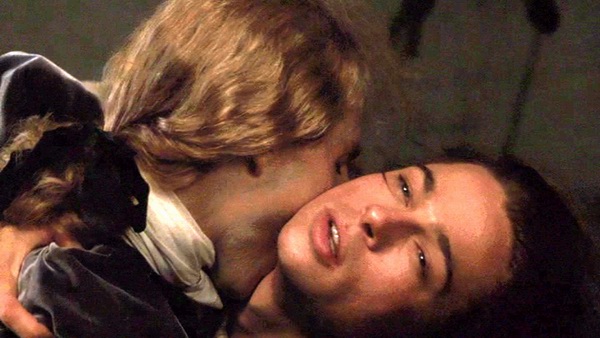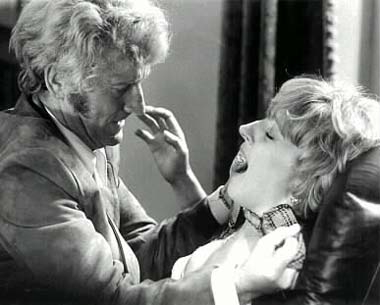A Long-Winded Rejection of Anti-Gay Arguments
Last week, I ran into a former dorm-mate of mine, who is a rather eccentric social conservative. Fixed to the rear of his backpack was the requisite McCain-Palin sticker, and below that a large “Yes on 8” sticker. The latter refers to Proposition 8, which is a California initiative that “Eliminates [the] right of same-sex couples to marry.” This man, who I'll call Paul, is the first person I've actually run into who supports Prop 8, and being gay myself, I decided to ask why he was voting “yes” on the measure.
Paul explained that homosexuality was a sin according to the Bible, that it was natural for a man and a woman to be in a family, that throughout history societies that featured “open” homosexuality subsequently collapsed, that it would allow other forms of sexual deviance to be widely accepted, and that being gay was a choice. The more I listened to Paul's arguments, the more I realized that we viewed Prop 8 in completely different ways. For him, this is an issue about maintaining societal normality and morality; for me, it is a pivotal civil rights issue.
When I asked him how he could substantiate his arguments, Paul invariably fell back on several justifications, including the Bible, a nebulous reference to “history,” and an even more nebulous reference to some “studies.” Let's be clear: these are not valid ways to support an argument. There's really no rational way to support or refute these reasons, since the guy views this as a moral issue, but I'll try. As I see it, the Christian testament's central message is that we should love one another. Jesus – who I, being Jewish, view as an important leader and, perhaps, a prophet, but not the Messiah – never mentioned anything negative about homosexuality, and he embraced lower-status people to the shock and consternation of his followers. When I offered this rebuttal to Paul, he had no response, other than the fact that homosexuality was declared a sin in the Hebrew testament.
Now, when it comes to the issue of what defines a “traditional” marriage, things get a bit tricky. Paul is correct when he says that most families throughout history have involved a man and a woman; but he provides no reasons as to why this has occurred. I can speculate that it has to do with the capacity for the heterosexual couple to reproduce, and that societies and the Church have then shaped cultures so that reproduction is seen as the ultimate goal of marriage. (If nothing else, such child-bearing couples helped to increase the number of members of a religious sect. Again, this is all speculation.) Paul did not recognize, however, that there have been gay people all throughout history, and while gay couples may not have been married, they did, in fact, exist. And his argument that civil unions provide gay couples with the same rights as married couples is, in effect, a resurrection of the “separate but equal” argument of
Plessy v. Ferguson. Civil unions are ineffective as a long-term solution because they fail to address the underlying issue: a group of people is being treated separately based off of one set of criteria, which is inherently unequal.
The main thrust of Paul's argument regarding traditional marriage concerns how children without the proper balance of a man and a woman grow up in a deprived environment that results in them, essentially, being fucked up. Paul mistook my silence as a recognition that his argument is correct. To the contrary, who says that a child in such an environment ends up being deprived? Studies do. What studies? Well, studies. And history, of course. Again, Paul presented his views in an ostensibly rational manner, but ultimately without any way to fully substantiate them. Here is my counter-argument. Look at heterosexual couples and see how many fucked up people result from such families. And as for the notion that gay couples raise children who are more likely to be gay, I offer this question: to whom was I born? A straight couple. In fact, all gay people come from heterosexual relationships. The only practical advantage to a heterosexual couple over a homosexual one is that the former can reproduce, which is certainly important for the survival of our species. Some supporters of Prop 8 argue that gays can't reproduce, so they shouldn't be allowed to marry. But if that is the case, then heterosexual couples that can't or don't want to have children shouldn't be allowed to marry, either.
~ ~
It all comes down to how we view marriage. Is it a union that recognizes two people who love one another, or is it also a way in which we can help our population grow? I can't really answer that question, because it's up to each of us to decide our own priorities. So, let me now turn to the most touchy argument that Paul brought up: that opening up marriage will lead to the legal and social acceptance of “other” forms of sexual deviance, such as incest. Here's my position on the matter. I don't necessarily have an issue with an incestuous couple being married, because I believe that the State should not interfere in people's lives and narrowly define an institution like marriage. However, I suspect that most people involved in incest have big psychological issues, and I question whether such a couple's commitment to one another would be consensual or a true expression of love. Gay couples, on the other hand, consist of two people who are in love with one another, and who truly want to be together. The argument that “other” forms of sexual deviance are even on the same playing field as gay relationships is absurd.
And finally, there is the issue of whether others view being gay as a matter of choice. When I asked Paul whether he thought my being gay was a choice, he replied, “Yes, I do.” I have never understood this argument. One, because there have
always been gay people, even in times of persecution. Two, because I can't "help it" that I'm attracted to guys. Paul would never be able to appreciate this, but as a teenager, I struggled for over five years
trying to be attracted to girls. Three – and this is what I told Paul – why would I want to be gay when there are homophobes in the world, and when society generally paints homosexual relationships as inferior to heterosexual ones? His reply: “That is indeed the question.”
~ ~
For such an unusually succinct measure, Prop 8 carries a great deal of importance for a lot of people. The Family Research Council President Tony Perkins stated that Prop 8 is “more important than the presidential election.” The Church of Jesus Christ of Latter-day Saints has contributed an astounding $20 million to the Protect Marriage campaign. Meanwhile, opponents of the measure have been fighting back. Apple and Google contributed over $150,000 to the No on 8 campaign. In the meantime, my friend, Hillary, organized an art show – to which I donated some of my photographs – that raised $1,300 in a single night. For the last month, my friend, Jon, has been fervently phone-banking undecided voters, many of whom live in my home town, San Diego.
For some, Prop 8 is a measure that will eliminate an imminent threat to the “sanctity” of marriage. Indeed, gay marriage is a shift from traditional notions of heterosexual relationships. Personally, I would have preferred if gays were legally and socially accepted in a more gradual manner, first with the passage of hate-crime legislation, and then with the passage of laws that prevent employment discrimination based off of real or perceived sexual orientation. Regardless, gay marriage is here, and despite the polarizing effect of the California Supreme Court's ruling, it has finally brought a long-hidden issue into the public sphere.
As I've already pointed out, homosexuality has been with us from the beginning. For too long, people have ignored the detrimental effects of forcing gay people to recognize that a heterosexual relationship is the ideal and exclusive way to love another person. And though the process has been painfully slow, people are beginning to accept homosexuality as a normal, non-threatening occurrence. Voting “no” on Prop 8 would prevent the passage of a discriminatory measure, protect my rights, and the rights of millions of others, as well as facilitate the acceptance of gays, who, as normal people, deserve to have the rights that many other Californians take for granted.
~Max~October 31, 2008


































